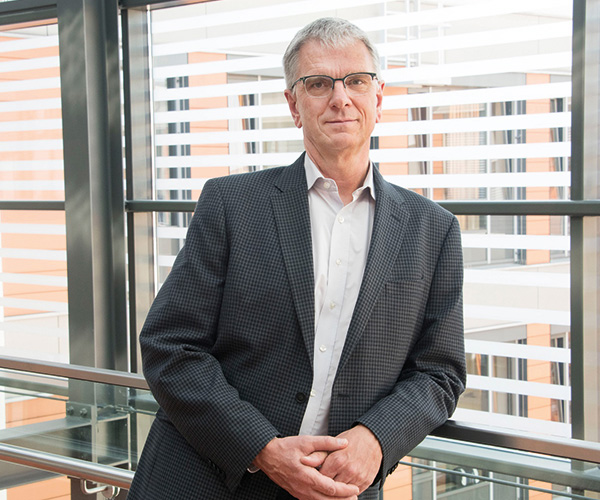
Wolfram Ruf: TICARDIO coordinator
CTH
Wolfram Ruf, M.D., Network Coordinator of TICARDIO, received a Humboldt Professorship in 2013 and is the Scientific Director of the interdisciplinary, translational Center for Thrombosis and Hemostasis (CTH) in Mainz since 2014. Interested in coagulation protease signaling, his laboratory is focused on receptors and enzymes of the coagulation pathway in thrombosis and hemostasis and specifically how these components contribute to thrombo-inflammatory processes. The interplay of coagulation factors with cells of the immune system is central to many pathological processes, including obesity and diabetes, autoimmunity, inflammation and cancer. His lab provides a rich environment for studying cell-specific functions of coagulation factors and receptors in extravascular locations, i.e. the tumor microenvironment, stem cell niches and secondary and tertiary immune organs. The activation of the coagulation initiator tissue factor (TF) by complement, thiol-disulfide exchange and cell injury signals will be pursued as a central pathway for the generation of thrombo-inflammatory extracellular vesicles and their roles in inflammatory diseases involving vascular cells.
Contact: ruf@uni-mainz.de

Katrin Schäfer
CTH
Prof. Schäfer went to Medical School at the University of Heidelberg, where she also did her Doctoral Thesis in Anatomy and Cell Biology (1995). She received her Habilitation in Experimental Internal Medicine from the University of Göttingen in 2004. Since then she has been an Assistant Professor at the University of Göttingen (2002-2013) and, since 2013, an Associate Professor of Medicine at the University of Mainz (Center of Cardiology, Cardiology I), and Principal Investigator at the DZHK (German Center for Cardiovascular Research).
Prof. Schafer’s laboratory is interested in molecular mediators and mechanisms of cardiovascular risk factors (in particular, obesity and age) on vascular cells and their importance for thrombosis. This includes neointima formation and neovascularization. Her work is also concerned with the role of perivascular adipose tissue during vascular remodeling processes and the importance of red blood cells for atherosclerosis and vascular calcification.
Contact: Katrin.Schaefer@unimedizin-mainz.de
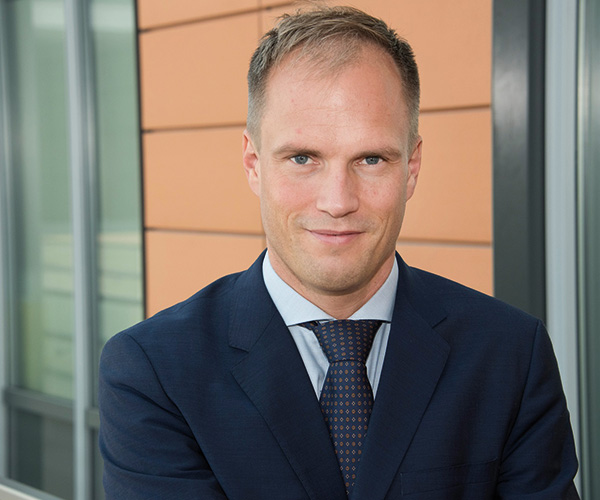
Philip Wenzel
CTH
Philip Wenzel attended medical school at the Universities at Erlangen-Nuremberg and Hamburg and graduated in 2002. He spent is residency in internal medicine and cardiology at the university medical centers in Hamburg and Mainz and got his board certification in 2009 and 2011, respectively. Philip Wenzel was a postdoc in the laboratory of Prof. Thomas Münzel in 2005/2006 and a junior group leader at the Center for Thrombosis and Hemostasis in the first funding period from 2011 to 2014. He is Associate Professor for Vascular Inflammation since 2016 and managing senior physician at the Center for Cardiology since 2018 at the UMC Mainz and Principal Investigator at the DZHK.
His translational research interest focus on vascular inflammation in hypertension, myocardial infarction and venous thromboembolism as well as vascular dysfunction in disease states of systemic inflammation. His international and diverse research groups comprises both scientist and physician scientist as well as junior PIs.
Contact: wenzelp@uni-mainz.de
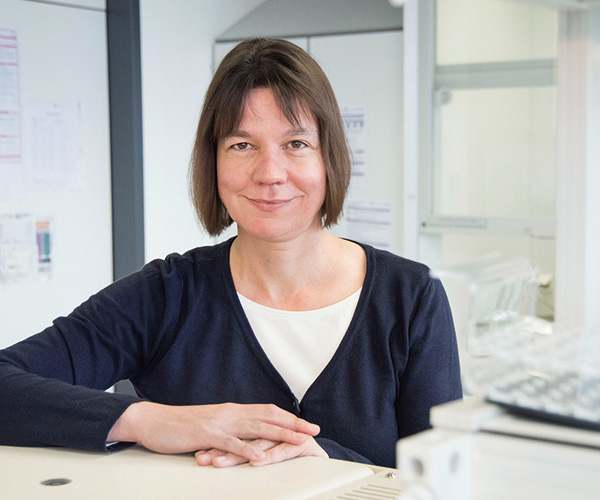
Kerstin Jurk
CTH
During her PhD, Kerstin Jurk focused her research on the cross-talk between platelets and leukocytes in the platelet group of Beate Kehrel in Münster, Germany. After finishing her PhD in 1999, she continued platelet research as a postdoctoral researcher by elucidating mechanisms of platelet adhesion and their impact on vascular inflammation. She obtained a Lise-Meitner-Habilitation Fellowship of North Rhine-Westphalia, a personal grant as “Clinical Scholar Research Award” from the International Anesthesia Research Society and an Eberhard Mammen 'Excellence in Thrombosis and Hemostasis' Award. In 2012, she finished her habilitation in “Experimental Vascular Medicine” and moved to the CTH Mainz, Germany where she established the CTH-platform “Platelet Function” and her platelet research group.
Her current research topics are the cross-talk of platelet activating and inhibitory signalling pathways in relation to platelet function and interaction with leukocytes and vascular cells and platelet function disorders.
Contact: Kerstin.Jurk@unimedizin-mainz.de
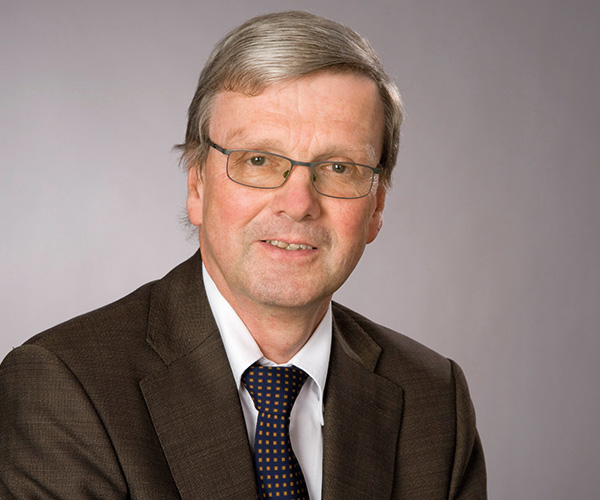
Ulrich Walter
CTH
Ulrich Walter received his education in medicine and biochemistry from Göttingen University, Germany, and Brandeis University, USA. After completing his thesis, he was a postdoctoral fellow at Yale University, USA, and Würzburg University, Germany. Ulrich Walter completed his habilitation and his training in Würzburg. Since 1989, Ulrich Walter has been Professor of Clinical Biochemistry and Pathobiochemistry at Würzburg University, and between 2001 and 2011, the director of Laboratory Medicine, Würzburg. In 2012, he was appointed as director of the newly established Center for Thrombosis and Hemostasis in Mainz. After reaching retirement age, he has remained active as Senior Professor within the Platelet Group of the CTH. The major research interest of Ulrich Walter are protein kinases (PKA, PKG) as mediators of the effects of hormones, drugs and vasoactive factors in the cardiovascular system, in particular human platelets. More recently, he and his colleagues investigated major inhibitory pathways of human platelets using a combined functional, proteomic and phosphoproteomic approach.
Contact: ulrich.walter@uni-mainz.de
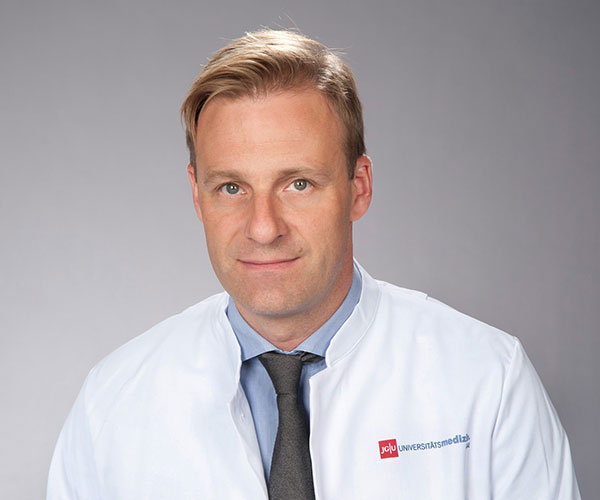
Sven Danckwardt
CTH
Sven Danckwardt studied medicine in Tübingen, Berlin and San Diego, USA. After his training in oncology and hematology he became postdoctoral fellow at the European Molecular Biology Laboratory (EMBL) MMPU (with Andreas Kulozik and Matthias Hentze). In 2011 he obtained the habilitation from the Ruprecht-Karls University in Heidelberg and joined the Medical Faculty and GRK 1591, MLU Halle as independent group leader (on RNA and tumor cell biology). In 2011 Sven Danckwardt received the Hella Bühler Award for Cancer Research and got a call for a Group Leader Position at the Medical Research Council (MRC) Edinburgh, UK. In 2013 he joined the University Medical Center Mainz as Professor for Experimental Hemostasis and Laboratory Medicine.
His research interests include the role of coagulation factors in processes beyond blood coagulation, miRNA and RBP-mediated control of the hemostatic system and non-invasive molecular imaging.
Contact: Sven.Danckwardt@unimedizin-mainz.de
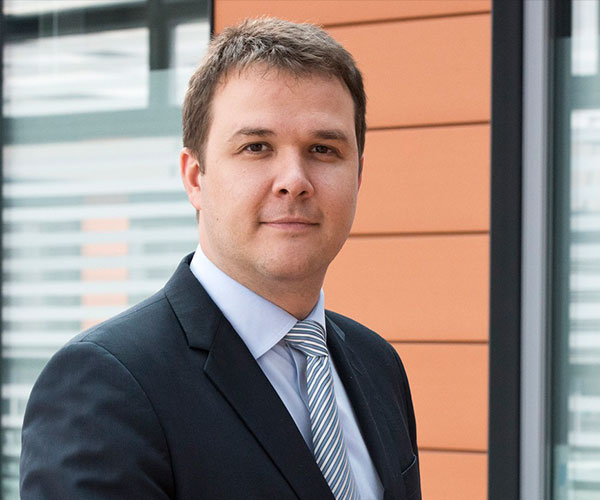
Philipp Wild
CTH
Contact: Philipp.Wild@unimedizin-mainz.de
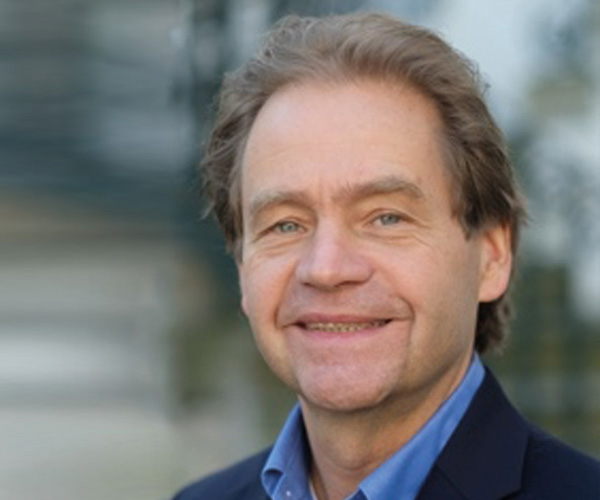
Tilman M. Hackeng
CARIM
His choice for biochemical research of blood coagulation proteins in relation to thrombosis was made in the late eighties during a lab rotation when he studied biochemistry at the University of Utrecht. He obtained his PhD at the same University in 1993 on protein C/protein S anticoagulant mechanisms. After a 5-year postdoc at The Scripps Research Institute, La Jolla, CA, USA, he returned in 1998 to the Netherlands as a Research Fellow of the Royal Netherlands Academy of Arts and Sciences at the Department of Biochemistry of the University Maastricht. His group studies the anticoagulant protein C/protein S/TFPI pathways in a (bio)chemical and curiosity-driven way and applies total chemical protein synthesis to structure-function analysis of coagulation proteins in general. As part of the Maastricht Imaging Valley initiative, they design and synthesize peptide/protein-based contrast agents for targeted molecular imaging of cardiovascular disease. Currently he is the chairman of the Department of Biochemistry of the University Maastricht and director of the Cardiovascular Research Institute Maastricht (CARIM).
Contact: t.hackeng@maastrichtuniversity.nl
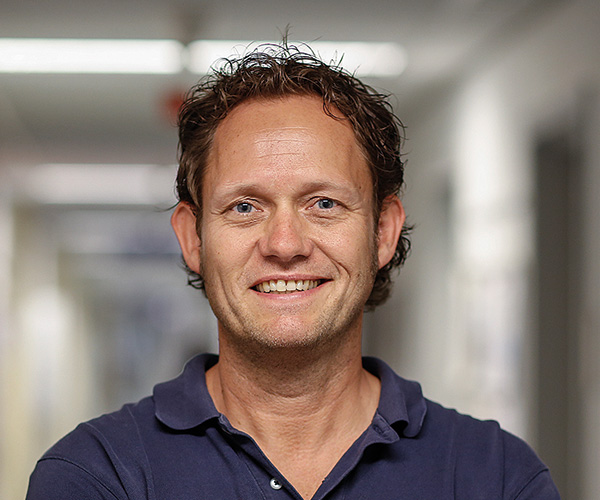
Leon Schurgers
CARIM
Initially trained in clinical chemistry and hematology at the University of Applied Science, he obtained his PhD at the department of Biochemistry on the role of vitamin K1 and K2 on bone metabolism and cardiovascular disease. He worked as postdoc on a Dutch Heart Foundation grant on the role of matrix Gla-protein synthesized by vascular smooth muscle cell and calcification.
In 2009, he was appointed on a tenured position at the department of Biochemistry within CARIM at the Maastricht University. After entering the top-talent program in 2016 he was appointed as full Professor of biochemistry of vascular calcification in 2017 where he is vice-chair of the department of Biochemistry.
The focus of his current work is elucidating the molecular mechanisms of vitamin K-dependent proteins (VKDP) by which vascular calcification is initiated and propagated. Key cellular events include activation and apoptosis of vascular smooth muscle cells (VSMC) and the formation of extracellular vesicles containing VKDP. His work will help to understand the paradoxal observation that patients with low vitamin K-status during oral anticoagulant treatment develop enhanced vascular calcification and our results might provide new insights in prognostic and preventive measures.
Contact: l.schurgers@maastrichtuniversity.nl
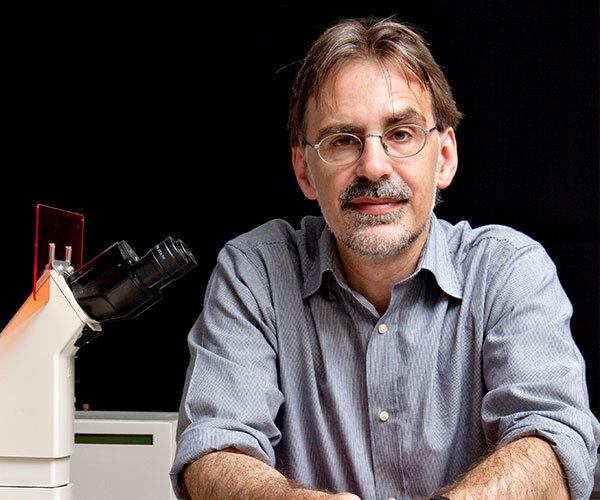
Johan Heemskerk
CARIM
Johan W. M. Heemskerk studied Chemistry and Biology and received his PhD from the Radboud University in Nijmegen, The Netherlands. After spending time at NUTRIM, Maastricht Universtiy, as a postdoc. He first became Associate Professor (2003) and then full Professor (2010) of Cell Biochemistry of Thrombosis and Haemostasis at the Cardiovascular Research Institute Maastricht (CARIM) and Cardiovascular Centre Maastricht, Maastricht University Medical Centre. His primary research interest are functional and structural (omics) insight into the role of blood cells in health and disease and the regulatory mechanisms how blood cells control coagulation, anticoagulation and fibrinolysis. His group also works on the interactions of blood cells with the vessel wall and investigates the roles of blood cells outside the field of thrombosis and hemostasis.
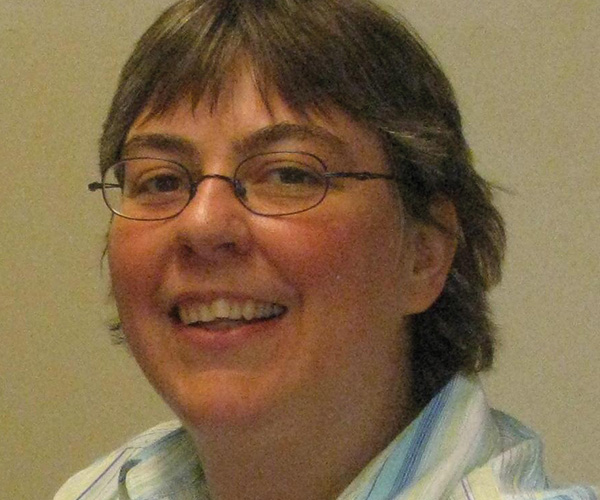
Elisabetta Castoldi
CARIM
Elisabetta Castoldi studied Biology at Ferrara University (Italy) and graduated cum laude in 1996. After defending her PhD thesis on the molecular genetics of coagulation factor V under the supervision of Prof. Francesco Bernardi (2001), she moved to the laboratory of Prof. Jan Rosing at Maastricht University (The Netherlands) for post-doctoral training in coagulation biochemistry. In 2006, she received an NWO VIDI grant, which enabled her to set up her own research line. Her research activity focusses on the molecular genetics and functional characterization of (inherited) coagulation defects that predispose to bleeding or venous thrombosis, with particular reference to factor V and the protein C pathway. Her most recent work has been dedicated to the anticoagulant effects arising from the interaction between splicing variants of factor V and tissue factor pathway inhibitor.
Contact: e.castoldi@maastrichtuniversity.nl
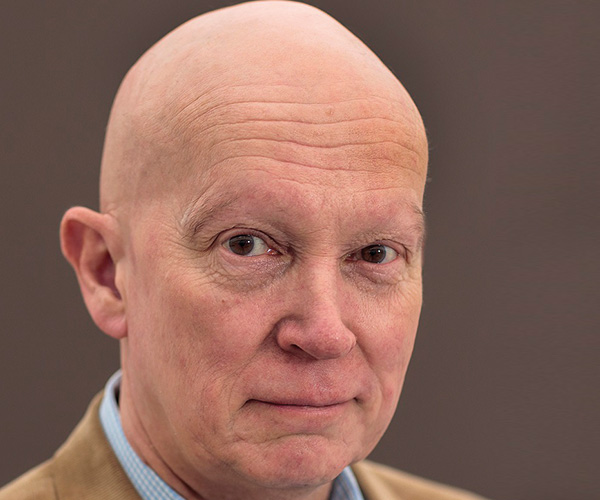
Hugo ten Cate
CARIM
Hugo ten Cate is a Professor of Clinical Thrombosis and Haemostasis at the Maastricht University Medical Center and the CARIM institute. He is the director of the Thrombosis Expert Center. His research is focused on mechanisms of (recurrent) venous and atherothrombosis studied in cohort and multicenter studies. In experimental studies, together with Dr Henri Spronk, he addresses the consequences of coagulation protease activity in mouse models of atherosclerosis, myocardial damage and atrial fibrillation. As a Fellow of the Gutenberg Research Foundation he collaborates extensively with the Center for Thrombosis and Hemostasis in Mainz.
He is married to Arina ten Cate-Hoek, who is also a staff member of our lab.
Contact: h.tencate@maastrichtuniversity.nl
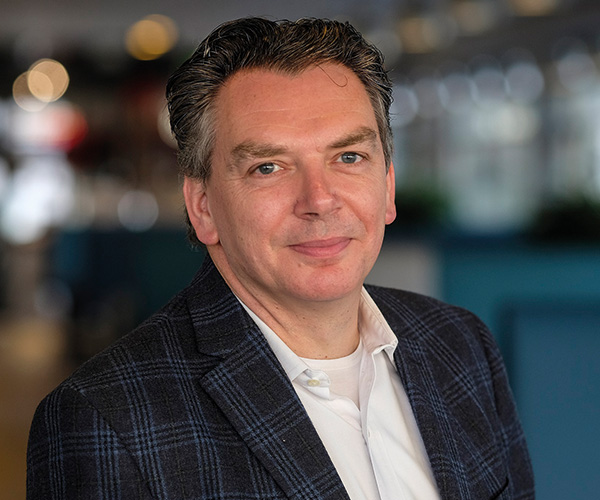
Henri Spronk
CARIM
Initially trained in Biochemistry and Molecular Biology at Nijmegen University, Dr. Spronk obtained a PhD in Biochemistry on the effects of impaired vitamin K-dependent protein carboxylation. The focus of his current work is on the bidirectional relation between coagulation and inflammation, as well as on the applicability of functional plasma assays such as thrombin generation, for atherothrombotic risk prediction. He has a special interest in the role of active coagulation factors, mainly thrombin, in activation of protein-activated receptors (PARs) which can regulate the balance between vascular protective and disruptive. Overall, knowledge on the non-haemostatic functions of thrombin and factor Xa enables pharmacological interference in cellular processes contributing to the development and progression of atherosclerosis or atrial fibrillation.
Contact: henri.spronk@maastrichtuniversity.nl
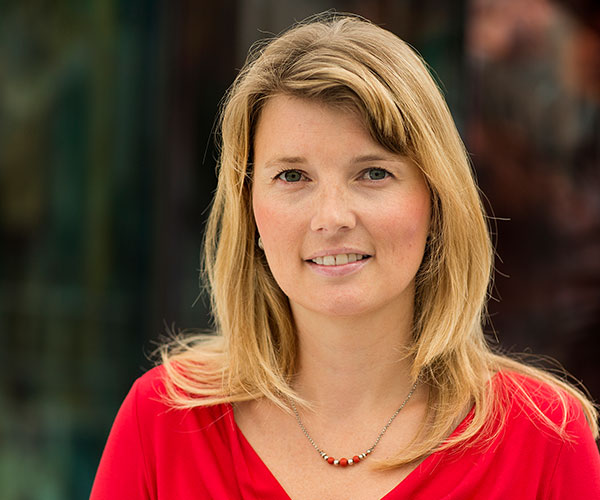
Judith Cosemans
CARIM
Judith Cosemans became fascinated to unravel the role of platelets in arterial thrombosis during her PhD research, which focused on the dynamic regulation of thrombus stability. After finishing her PhD in 2009, she executed an award winning postdoc project to develop flow chamber technology as a compatible alternative for experimental models of arterial thrombosis. Dr. Cosemans subsequently obtained two personal grants from the Dutch Heart Foundation (2011, 2015) and a Vidi grant from The Netherlands Organisation for Scientific Research (2016). These grants facilitate her current research line, which lies on the interface of platelet signaling and vascular biology. Her team aims to characterize the vascular-directed effects of arterial thrombi and to identify novel ways to prevent recurrent thrombotic events.
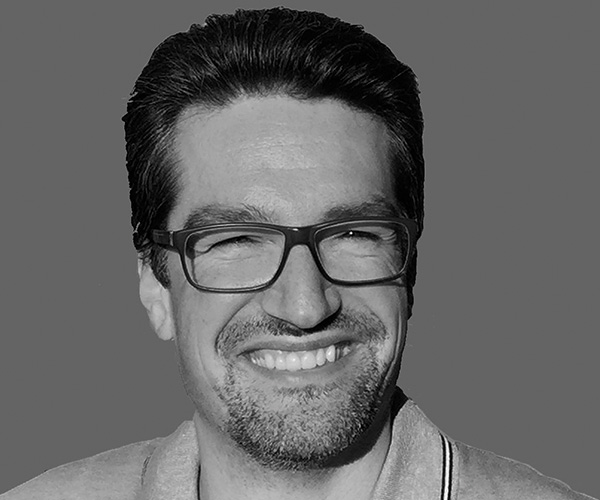
Rory R. Koenen
CARIM
Rory R. Koenen studied biochemistry in Sittard (B.Sc.) and at the Radboud University in Nijmegen (M.Sc.), the Netherlands from 1993-1999. He completed the training program 'Vascular Biology, Cardiac Function and Adaptation, Thrombosis and Hemostasis' (2003) and his Ph.D. in biomedical sciences (2005) at the Cardiovascular Research Institute Maastricht (CARIM), Maastricht University, The Netherlands. He then moved to the Institute of Molecular Cardiovascular Research at RWTH Aachen University in 2003, chaired by Christian Weber where he was granted a tenured faculty position in 2008. In 2011, Dr. Koenen moved along with Christian Weber to Munich and continued his work at the Institute for Preventive Cardiology (IPEK) at the Ludwig-Maximilians-University in Munich, Germany before moving back to CARIM in 2012 as the recipient of a VIDI grant. He is currently a tenured associate professor at CARIM. His current research interest is focussed on extracellular vesicles from platelets, which affect the behaviour and phenotype of other cells.
Contact: r.koenen@maastrichtuniversity.nl
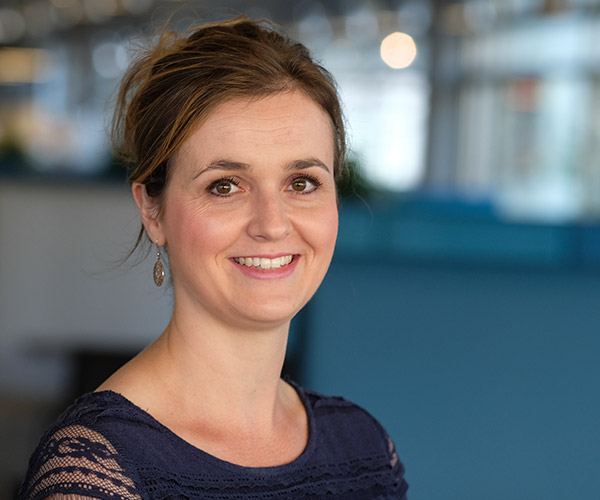
Paola E.J. van der Meijden
CARIM
Initially trained in Biological Health Sciences at Maastricht University, Dr. Van der Meijden obtained a PhD in Biochemistry on the interaction mechanisms of platelets and coagulation; focus on P2Y12 receptor and factor XII.
She acquired a unique bridging position, encapsulated within the Maastricht Thrombosis Expertise Center, aiming to link basic research on thrombosis and hemostasis with clinical research and applications. The focus of her current work is on the interactions between platelets and coagulation in acquired hemostatic dysfunction as a consequence of disease and treatment. She has a special interest in the negative and positive priming of platelets and the functional specialization of platelet populations. Overall, knowledge on the factors contributing to hemostasis and thrombosis enables the development of predictive and diagnostic tests, resulting in improved disease management.
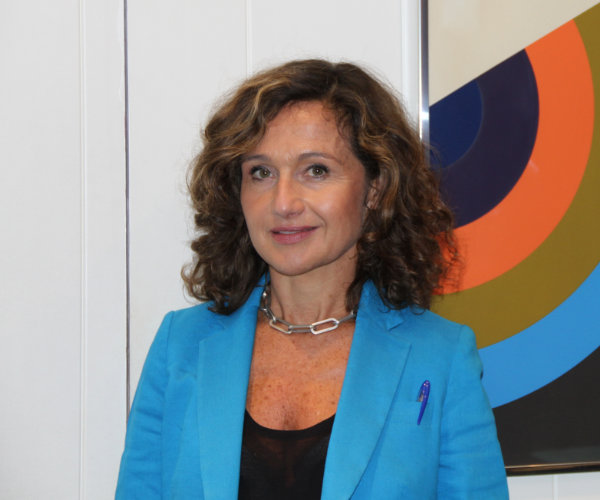
Francoise Dignat-George
C2VN
Francoise Dignat-George is the head of the Hematology and Vascular Department of Conception Hospital in Marseille. From 2004 to 2018, she has been the director of an INSERM unit entirely dedicated to vascular biology and since 2018, is the deputy director of the Cardiovascular and Nutrition Center (C2VN) of Aix Marseille University. Since 1985, Francoise Dignat-George has developed an expertise on vascular biology, hemostasis and thrombosis, with a particular interest in patient oriented/translational applications. More than 300 publications and 10 patents illustrate her scientific activities in the field. Her research interests focus on the mechanisms of endothelial lesion and regeneration, the role of microvesicles in vascular homeostasis and the translation of this knowledge to the development of innovative biomarkers and new targets to improve early prevention, diagnostic and therapy of vascular disorders. Together with Jean Marie Freyssinet, Francoise Dignat-George set up the ISTH Scientific Subcommittee on Vascular Biology. She has been awarded the French “Légion d’Honneur” as well as a scientific distinctions such as John Ugelstat Award, The Foundation pour la Recherche Medicale Award and le Grand Prix de l'Académie de Pharmacie.
Contact: francoise.dignat-george@univ-amu.fr
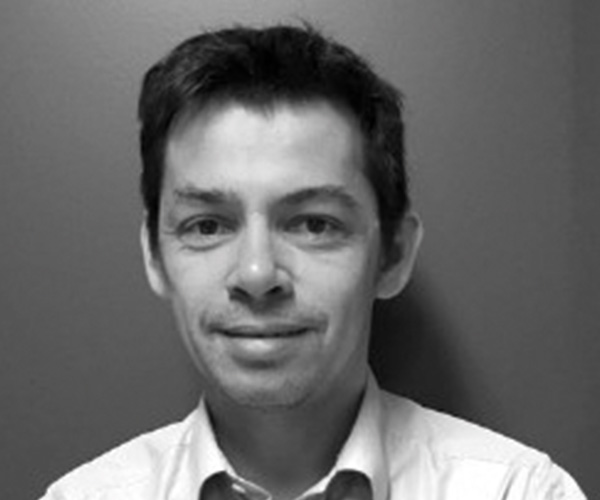
Christophe Dubois
C2VN
Christophe Dubois studied biotechnology and cell biology at the University of Marseille, France. During his PhD, obtained in 2003, he worked at Hoffmann-La Roche, Basel, Switzerland in the Beat Steiner’s group. He then moved to the United States to the Furie’s lab at Boston, MA. Back in France, he held a position of Associate Professor at the Faculty of Medicine in Marseille between 2006 and 2015. In 2015, he joined the Faculty of Pharmacy as Professor in Cell Biology. His research activities mainly focus on the mechanisms involved in thrombus formation and in thrombosis associated with cancer. He was elected as a member of the INSERM Scientific specialized committee (2009-2012), a member of the council of the French Group on thrombosis and cancer (2011-2016) and a member of the council of the French Group for Thrombosis & Haemostasis (2013). Since 2017, he is the co-chair of the Scientific and Standardization Committee on Hemostasis and Malignancy of the ISTH.
Contact: christophe.dubois@univ-amu.fr
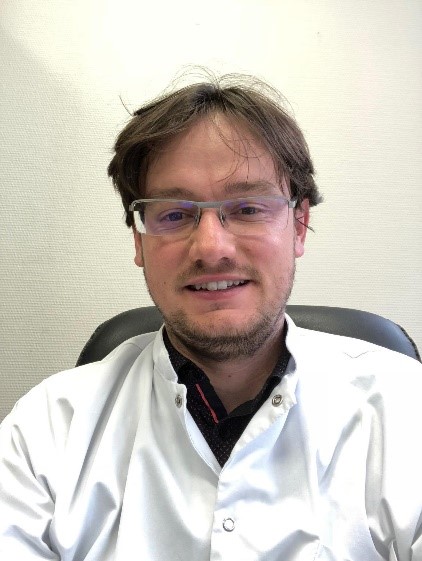
Romaric Lacroix
C2VN
Romaric Lacroix (PharmD, PhD), 39 years old, is associate professor in hematology and immunology at the CardioVascular and Nutrition Research Center (C2VN) at Aix-Marseille University in Marseille (France) where he coordinates a research group on microvesicles (MV). He completed a Pharmaceutical and Medical Biology educational and training program at Aix-Marseille University in 2007. During his PhD in the Françoise Dignat-George’s group in Marseille, he described the plasminogenolytic activities of MV and made a post-doctoral experience in the Furie's lab at Harvard Medical School (Boston). R. Lacroix is a recognize as an expert on flow cytometry analysis for detection and measurement of MV and focuses his research program on the role of MV in haemostasis. He coordinated several MV studies of the standardization subcommittee in vascular biology of the International Society in Thrombosis and Haemostasis and published around 60 indexed publications (H-Factor = 25) focused on MVs.
Contact: romaric.lacroix@univ-amu.fr
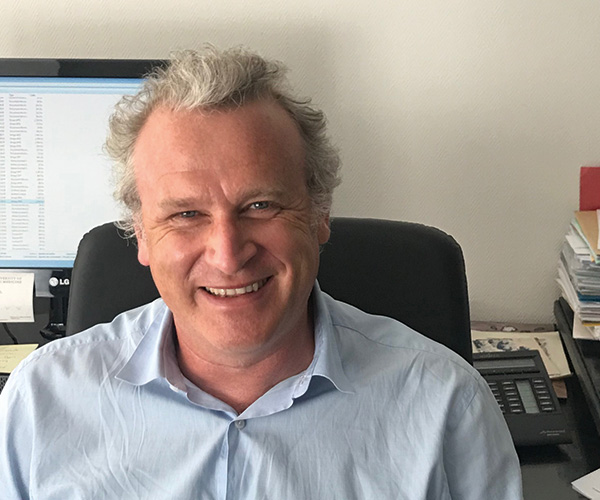
Pierre-Emmanuel Morange
C2VN
Pierre-Emmanuel Morange, MD-PhD, is as a Professor of Hematology responsible for the departments of Hematology of two Hospitals in Marseille (North and Timone). He is the Co-director of Team 2 at INSERM U.1263, INRA U.1260 Center for CardioVascular and Nutrition research (C2VN) – Faculty of Medicine – Aix-Marseille University. He is an international expert in genetic epidemiology, hemostasis and thrombophilia with great experience in clinical trials. Pierre-Emmanuel Morange is the main coordinator of the MARTHA Study which provides a large number of phenotypic, genetic and epigenetic data together with bioresources on first and recurrent venous thrombosis (VT) events (including DNA and plasma samples). He is the co-coordinator of the International Network of Venous Thromboembolism (INVENT) and member of the steering committee of Clinical Research Network and of the Investigation Network on Venous Thromboembolism (INNOVTE, French Clinical Research Infrastructure Network). He is also the Principal Investigator of the Work package on VT in the GenMed Labex (2011-2021).
Contact: pierre-emmanuel.morange@univ-amu.fr
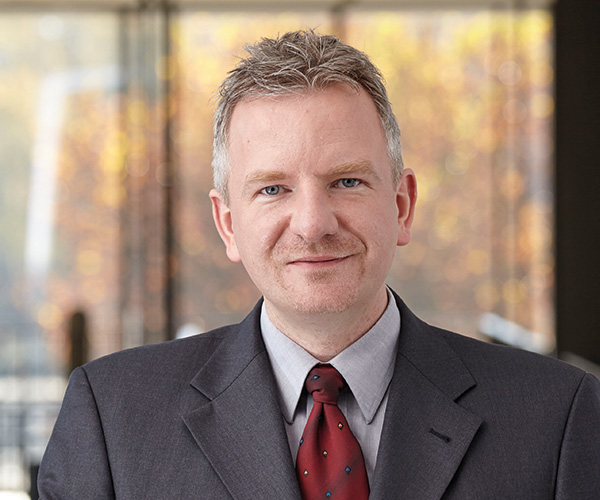
Albert Sickmann
ISAS
Prof. Albert Sickmann is the president of ISAS and head of the Bioanalytics department. He is an expert in proteomics and multiomics methods and specializes on the function and molecular dynamics of human platelets. Before joining ISAS in 2008, he was junior Professor for Proteomics at the Ruhr University in Bochum and Professor for Protein Analytics at the Rudolf Virchow Centre in Würzburg. Since 2015, he also holds an honorary professorship at the University of Aberdeen, Scotland, UK. Albert Sickmann was president of the German Society for Proteome Research (DGPF, 2013-2017) and a member of the scientific advisory board of the German Biochemical Society (GBM, 2010-2018). Currently, he is a member of the board of the European Proteomics Association (EuPA).
Contact: info@ticardio.eu
